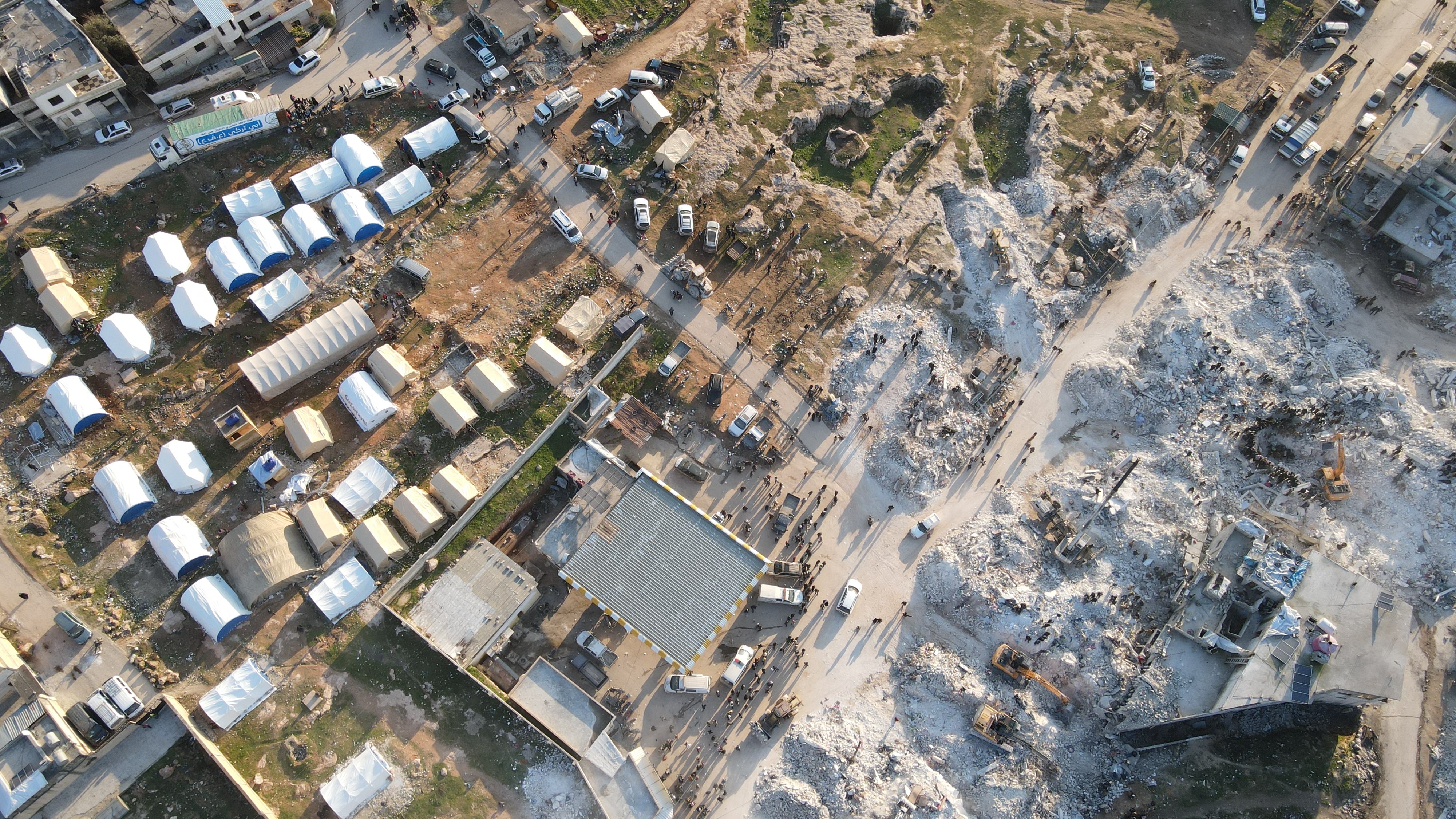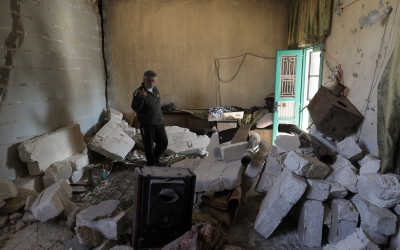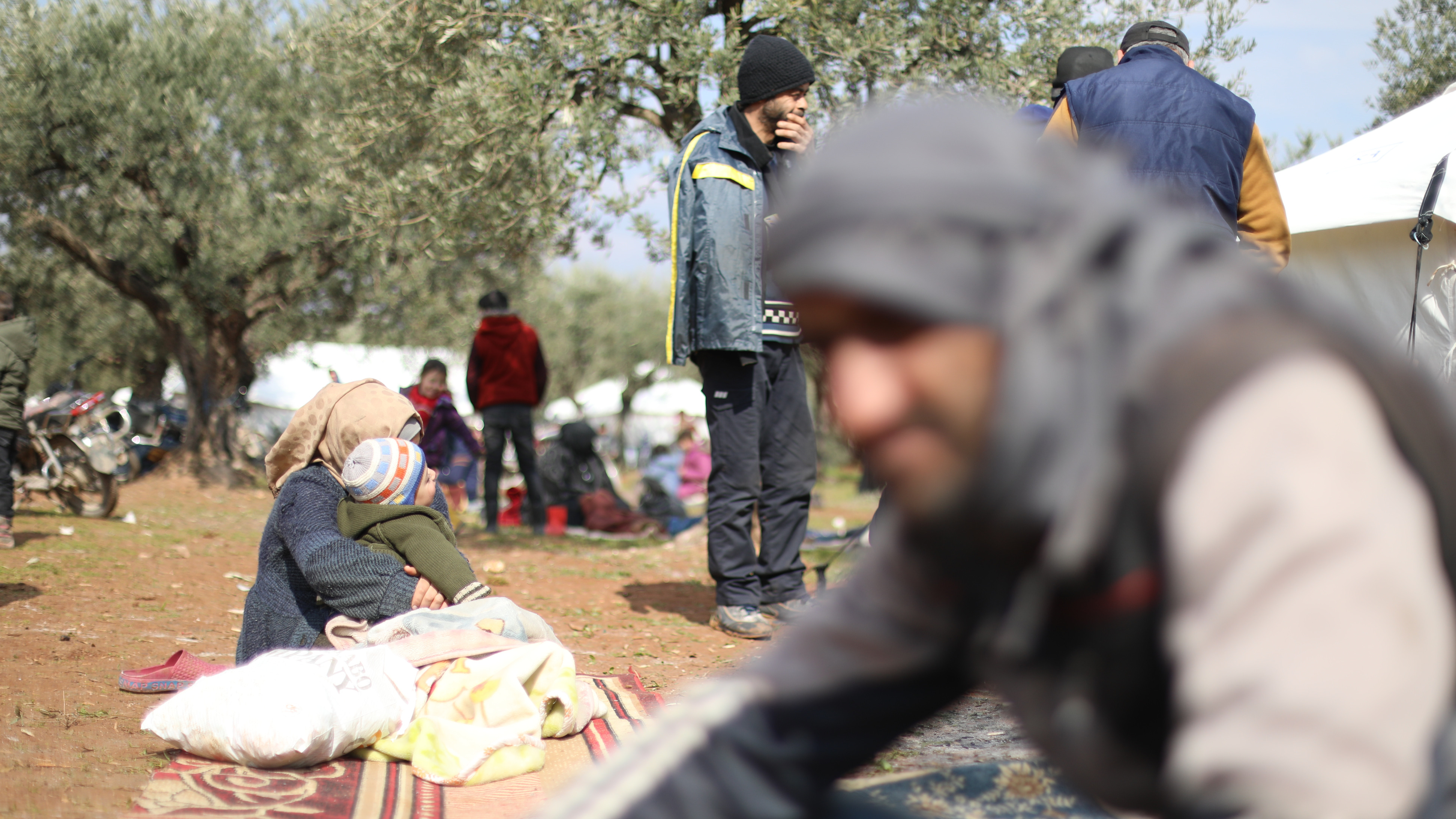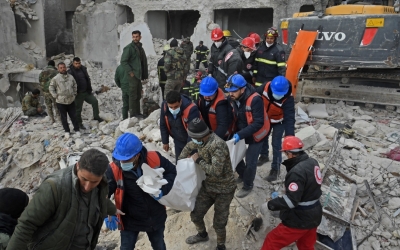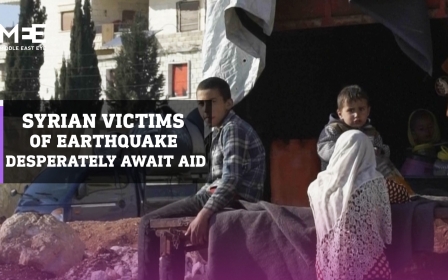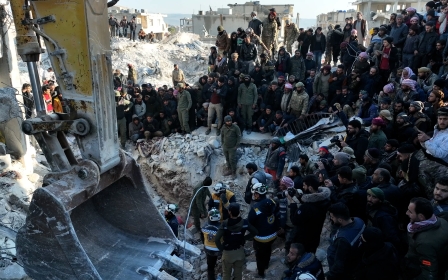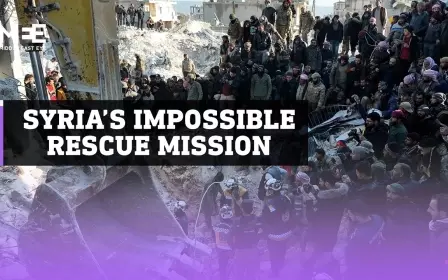Syria earthquake: Displaced in northwest lack aid and shelter in freezing cold
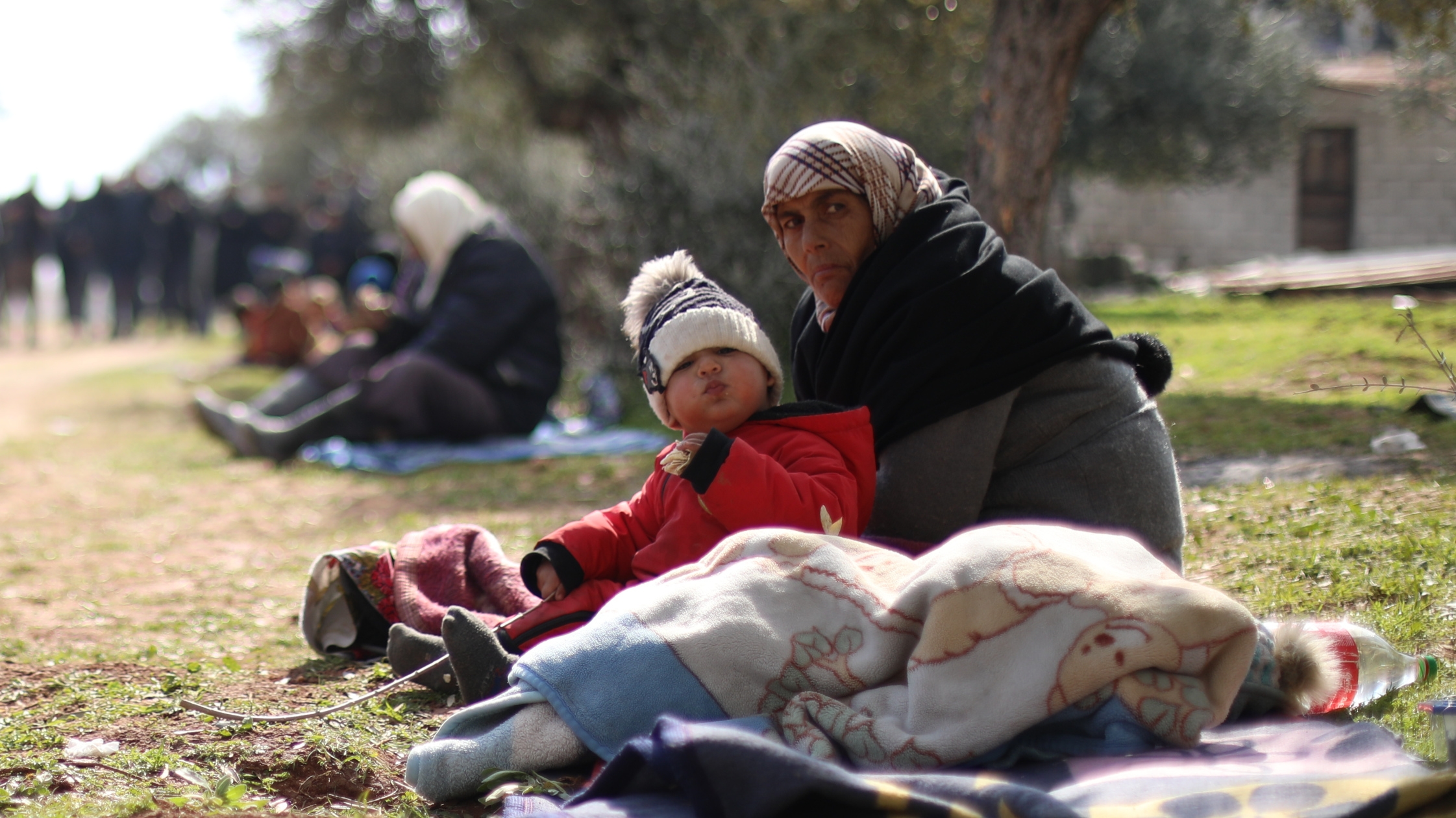
Lacking even temporary accommodation, thousands of Syrian families have been sleeping outdoors in sub-zero temperatures across the opposition-held northwest of the country ever since the devastating earthquakes that struck last Monday.
The quakes have so far killed more than 41,000 people and affected over 20 million people in Turkey and Syria, whose northwestern region has been most affected.
"I spent the first three days of the disaster in the open, until I was able to find a tent… without the support of aid organisations," Nidal Mustafa Ibrahim, who had to evacuate a house in the village of Azmarin in western Idlib when it began to crack, told Middle East Eye.
"Thank God, I am with my family, and many people in the area where I live miraculously survived. The situation is tragic and difficult to explain," Ibrahim said.
New MEE newsletter: Jerusalem Dispatch
Sign up to get the latest insights and analysis on Israel-Palestine, alongside Turkey Unpacked and other MEE newsletters
More than 4,400 people have been reported killed and 8,600 injured by the earthquake in northwest Syria, according to the United Nations Office for the Coordination of Humanitarian Affairs (OCHA), while the death toll reported in government-held parts of Syria stands at 1,414.
There are no reliable statistics on how many have died in the aftermath while trying to survive in sub-zero temperatures with no deliveries of aid.
The devastation in the opposition-held northwest has been compounded by a lack of good infrastructure or relevant expertise in a region already suffering a humanitarian crisis caused by 12 years of war.
Before the earthquake, Idlib was home to some four million people, 2.8m of whom had been displaced by pro-Assad forces and the Syrian security services, both of which are under western sanctions for their involvement in the killing of around 350,000 people since 2011, according to human rights groups.
Now, according to Kelly Clements, deputy high commissioner of the UN Refugee Agency, the number of displaced in the northwest sits at 5.3m.
“For Syria, this is a crisis within a crisis,” Sivanka Dhanapala, Syria representative of the UN High Commissioner for Refugees, said on Friday: “We’ve had economic shocks, Covid and are now in the depths of winter, with blizzards raging in the affected areas.”
Initial estimates say over 2,276 buildings have collapsed, though it is difficult to measure whether damage to some buildings has been caused by the earthquakes or previous Syrian government and Russian shelling.
The Response Coordinators Group, a local Syrian NGO based in Turkey and Syria, said in a statement that 45 percent of the infrastructure in the northwest had been damaged.
The director of the group, who survived the disaster and whose house in southern Turkey was damaged - and then burgled - told MEE that the numbers of those in need of aid keep rising.
Fear of Assad-linked rescue teams
Fourteen truckloads of UN aid were finally delivered to the northwest on Friday, according to Anadolu Agency, but it was not enough and painfully slow to arrive.
Hundreds of civilians died under the rubble due to a lack of life-saving aid - including machines to remove the rubble - in the first three days of the disaster, according to local rescue teams.
On Wednesday, when an aid convoy of 80 trucks from villages in the Deir Ezzor province of eastern Syria reached the region, activists launched a hashtag thanking donors under the ironic name “United Nations Deiran” (the name for inhabitants of Deir Ezzor) to point to the UN's failures. Others have protested by flying the UN flag upside down.
The government of Bashar al-Assad on Friday gave permission for international aid to enter the rebel-held areas through crossings under its control for a period of three months.
Assistance would arrive to those who need it most with the help of the UN, the Syrian Red Crescent, and the International Committee of the Red Cross, Damascus said.
Assad’s decision came after civilians in opposition-held areas refused to receive humanitarian aid or even rescue teams coming from Assad-held areas.
"Civilians in Idlib fear that rescue teams linked to the Assad regime may be informants or work with the Syrian security services," Firas Mansor, an official in Idlib who works for the Emergency Response Team, a Syrian NGO based in Turkey, told MEE.
Arab rescue teams and international humanitarian aid have landed at Damascus international airport, but have not yet reached northwestern Syria, the most affected area in the county.
According to the Response Coordinators Group: "Eighty eight percent of the affected people are in the opposition-held areas while the government-held areas have received 90 percent of the aid for those affected."
Prior to the announcement, the only path for international aid to arrive in rebel territory was through the Bab al-Hawa crossing between Syria's Idlib province and southern Turkey, which had been closed for several days due to the earthquake impacting guard officials in Turkey's Hatay province.
"The philanthropists [local donors] are many, but the problem is that donations are not enough for the afflicted people. The tents are less than the number of the affected people,” said Ibrahim.
"Even those who are lucky enough to have a tent have their tent empty. We don't have blankets, sleeping mats, or heating materials. We need a lot of basic materials," he added.
Ahmed Hikmat Barakat, a resident of Azmarin who helps shelter affected people, told MEE: "There are still dozens of survivors arriving from cracked buildings and destroyed cities, many without tents.”
"It is really hard to explain the situations of the women and the children, there are many tents housing three families and others housing four. Most of what we need now are tents, mattresses, and blankets," he added.
"We are in winter. The common cold is starting to hit the children. The children live without heating, without milk, without diapers, and without their basic needs," he said in a voicenote, while someone coughed behind him.
The disaster, which hit most Syrian provinces, seems to have broken the international isolation of Assad, who appeared smiling among survivors in Aleppo on Saturday.
Analysts say that Assad is seeking to gain a political advantage from the earthquake, pressing for foreign aid to be delivered through his territory as he aims to restore relations with foreign powers.
The United Arab Emirates - the first Gulf country to normalise ties with the Assad regime after years of boycott - is spearheading regional relief efforts.
"People in northwest Syria look at the regime as the main cause of their suffering," Mansor of the Emergency Response Team told MEE.
"Thousands of people were displaced due to regime military operations, they were barely able to get shelter and some furniture. Now they have lost everything.”
Middle East Eye delivers independent and unrivalled coverage and analysis of the Middle East, North Africa and beyond. To learn more about republishing this content and the associated fees, please fill out this form. More about MEE can be found here.


